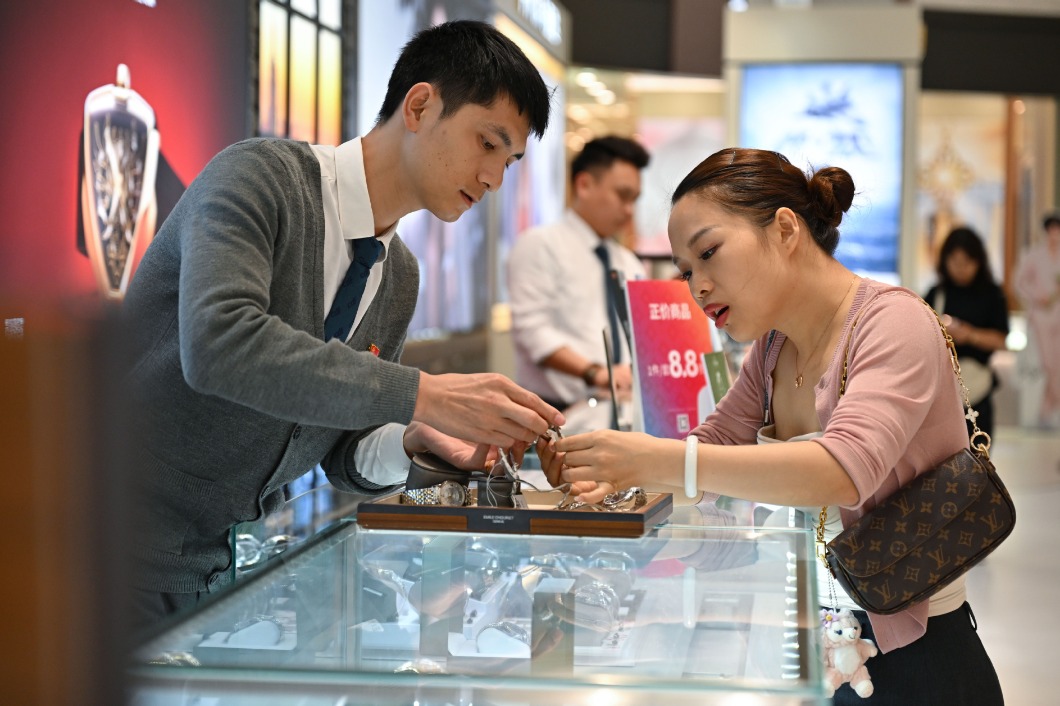Breaking new ground, Audi builds EV plant in Changchun


German carmaker invests in vast potential of China's new energy vehicle segment
Audi AG has kicked off construction of its first electric vehicle-only plant in China, as part of the German premium carmaker's latest efforts to explore the burgeoning EV segment in the world's largest vehicle market.
The plant, located in Changchun, Jilin province, is set to be completed by the end of 2024. It is designed to produce more than 150,000 vehicles a year based on the PPE platform that Audi has developed with Porsche, another premium brand of Volkswagen.
Changchun is one of the largest automotive cities in China, where FAW is headquartered.
Audi has been producing models for the Chinese market in FAW-Volkswagen plants since 1988, and many suppliers for the new plant are located in and around the city.
"We are bringing the Premium Platform Electric-in short: PPE-to China. This means, electric Audi models, from China for China," said Markus Duesmann, chairman of Audi's board of management.
The first models expected to roll off the assembly line include the A6 e-tron sedan and the Q6 e-tron SUV, said Duesmann, who is also responsible for the carmaker's China business.
The plant is owned by Audi's joint venture with China FAW Group. Called Audi FAW NEV Company, it is the first Chinese joint venture in which Audi holds a majority stake.
Audi said it is investing around 2.6 billion euros ($2.72 billion) in the overall project, including the creation of the joint venture and construction of the manufacturing facility.
"Audi has a clear road map for the electric future. And the Audi FAW NEV Company is an important part of our strategy for China," said Duesmann.
A total of 20 buildings will be finished on the site by the end of this year, said the carmaker. The technical crews housed at the site will cover the entire value chain needed for automotive manufacturing.
There will also be a battery assembly facility, where Audi will manufacture high-voltage batteries used in China-specific PPE models, it said.
Audi China President Juergen Unser called the new joint venture an important part of the German carmaker's new growth strategy in China, its largest market globally.
"In the years to come, we want to put an even stronger emphasis on China. The goal of our new strategy is 'to make Audi in China even more Chinese'," he said.
He said one of the major efforts is to intensify localization in terms of both production and research and development.
"We will increase our R&D budget spending, we will hire new talents especially for connectivity and electronics development, and we will invest heavily in new technologies," said Unser.
Helmut Stettner, CEO of the new joint venture, is confident about their prospects.
"We are bringing together Audi's know-how from over a century of automotive history and the comprehensive expertise of our long-standing Chinese partner FAW in a new, ultramodern company with a production site," he said.
Audi is one of many international carmakers that are stepping up efforts to seize opportunities in China's new energy vehicle market.
China has the world's largest market for electric cars and plug-in hybrids since it overtook the United States in 2015.
The China Passenger Car Association estimated that NEV sales in June may exceed a record 500,000 units.
A total of 1.72 million NEVs were sold in the first five months, up 119.5 percent from the same period of 2021.Yet so far, the market is dominated by local brands.
Of the 15 most-popular NEV carmakers from January to May, only three were international brands.
Tesla ranked third, and Volkswagen's two joint ventures-FAW-Volkswagen and SAIC Volkswagen-occupied the 14th and 15th place. Combined, they had a 10.4 percent share of the market.
Analysts said local Chinese brands moved earlier in the NEV era. Their agility and speed in production and offerings as well as their better understanding of local tech-savvy customers have helped their sales.
In the first five months, NEVs accounted for 19 percent of the total sales of internationally branded premium vehicles in the Chinese market. While, the proportion was 45 percent when it comes to Chinese marques.
The vast potential has attracted Audi as well as its rivals BMW and Mercedes-Benz to hasten efforts to electrify their product lineups in the country.
Audi said it will offer five China-made electric models in the Chinese market by 2025. The carmaker estimated that NEVs will account for more than half the total premium vehicle sales in China by 2030.
- First post-pandemic car, motorcycle fair opens in Serbia
- Ukraine conflict driving up electric vehicle cost and increasing demand
- VW partners with Chinese companies to cut battery cost
- 'Resilient' VW expects to double EV sales in China
- World's top 10 brands with most plugin electric vehicle sales in 2021




































